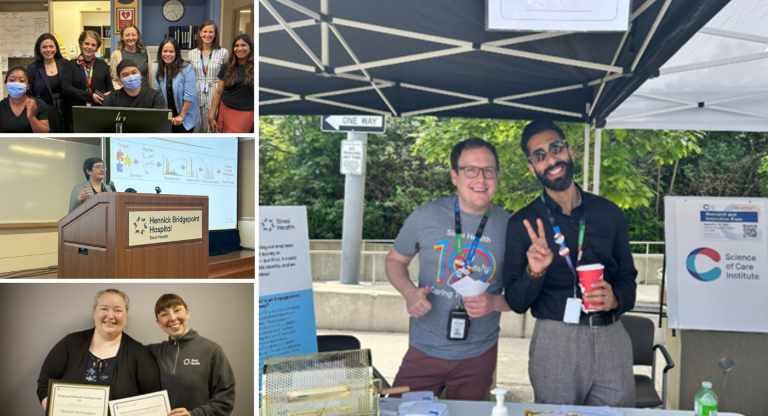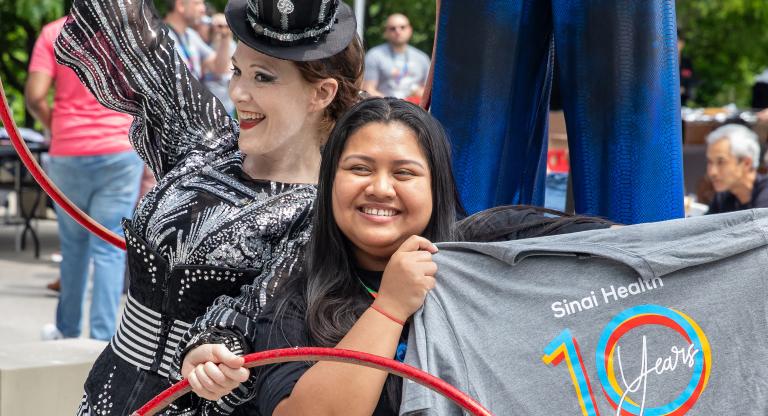Seeing red in the yellow: bladder cancer and the latest in research

“The first sign of blood in the urine, don’t delay. Even if you are not feeling pain,” says Dr. Alexandre Zlotta, a uro-oncologic surgeon and Director, Uro-Oncology at Mount Sinai Hospital’s Christopher Sharp Cancer Centre, Murray Koffler Urologic Wellness Centre.
“We are living in unprecedented times and there is a tendency to think it can wait, but you must check this symptom out immediately and see your doctor.” This symptom may link to conditions such as urinary tract infections, and routine tests can often detect blood microscopically. But seeing blood in the urine, especially for older adults with risk factors including smoking or exposure to chemicals like hair dye, can be an indication of bladder cancer.
Bladder cancer generally starts in the cells that line the inside of the bladder and is described as non-muscle invasive or muscle-invasive based on tumours in the lining only or deeper in the bladder muscle. Non-muscle invasive disease is the most common diagnosis in Canada and patients often need ongoing monitoring due to highly recurring nature of these tumours. In about 35 per cent of these tumours, Dr. Zlotta calls “wolves in sheep’s clothing”, these can become fast-moving and aggressive muscle-invasive disease.
“Bladder cancer is the fifth most common cancer overall. This is not insignificant, and we continue to drive research to better understand the disease and improve quality of life for patients,” says Dr. Zlotta.
Newer treatment approaches
Researchers at Mount Sinai Hospital, University Health Network and hospitals in the United States are conducting a retrospective study to compare outcomes of radical cystectomy (surgical removal of the bladder) with tri-modal therapy (transurethral resection of the bladder tumour, chemotherapy and radiotherapy) in the largest group of patients with muscle-invasive bladder cancer. In the absence of a randomized study which cannot be done to compare these treatment approaches, their findings will be significant in supporting patients and physicians in fulsome discussions about various treatments potentially to include bladder-sparing tri-modal therapy.
Greater understanding of hereditary risk
In collaboration with the Familial Gastrointestinal Cancer Registry (FGICR), the researchers are also involved in expanding work to support individuals with Lynch Syndrome, an inherited condition linked to increased risk of colon and endometrial cancers as well as potentially bladder cancer and urinary tract cancers. Greater understanding of risk of bladder cancer is helping to shed light on the most appropriate screening schedule and ways to tailor care for these patients.
Ongoing collaborations
Teams at University Health Network and Mount Sinai Hospital are also researching ways to inform tools to predict aggressive disease risk in bladder cancer and individualized management. Together with researchers across Canada, they will also be conducting clinical trials for potential greater availability of intravesical immunotherapies.












